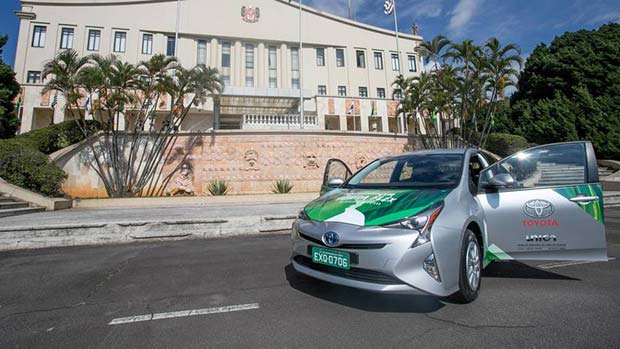For many years, Toyota has rightfully been held up as a major part of the car industry. Their quality in production and innovation in development makes sure they always stand out from the crowd. Therefore, their latest innovation, an ethanol hybrid vehicle, is very much worth looking forward to. While it’s not been without numerous bumps in the road en route to completion, this latest development is very much an impressive step forward.
In fact, according to Toyota CEO for Latin America, Steve St. Angelo, their new vehicle is ‘exceeding all expectations’ – a fantastic step forward for the company. This new model is an electric car that runs with a mix of gasoline and ethanol, combining together the modern and the conventional into a powerful mix.
According to St. Angelo, this car should be ready to be marketed in around three years. Speaking in an interview in Sao Paulo about the project, the CEO said: “The soonest I can put it in production, I’m going to do it,”
An interesting dilemma
However, it’s quite interesting to note that this good news comes amidst mass uncertainty in the once thriving Brazilian auto market. The Brazilian car market has seen poor results thanks to the major recession, the worst in national history, taking place in recent times. With high taxation and the bureaucracy that is so prevalent in South America, too, it’s hard for the factories for Toyota in both Brazil and Argentina to perform to the needed standard.
The fact that this latest car is going hand-in-hand with Brazil being among the world leaders in biofuels, then, is a happy coincidence. At the moment, it would cost anything from two to three times the price to invest in Brazil or Argentina for an auto firm compared to other nations.
St. Angelo remarked on this contradiction in performance, though, saying: “Our home countries are not going to give the money just because we are nice guys in Brazil. You have to have a good business case.”
From lower logistical costs to better in-house education, there are many changes that St. Angelo has suggested could be made to improve competitiveness. With concerns across the industry stifling growth, there is a lot of work going on behind the scenes in the Brazilian government to do something about the issue.
With previous figures once estimating as many as 5.5m car sales by 2018 in 2011, the reality is that the figure is not expected to go above 2.5m. This is a massive drop-off from what was hoped for, and shows why companies like Toyota are happy to innovate in a bid to get things moving again in what could – and should – be a major global economy.
St. Angelo, though, sounded his usual confident, proclaiming that: “We don’t want to compete only in Brazil, I don’t want to compete only to sell cars in Argentina. I want to compete globally.”
